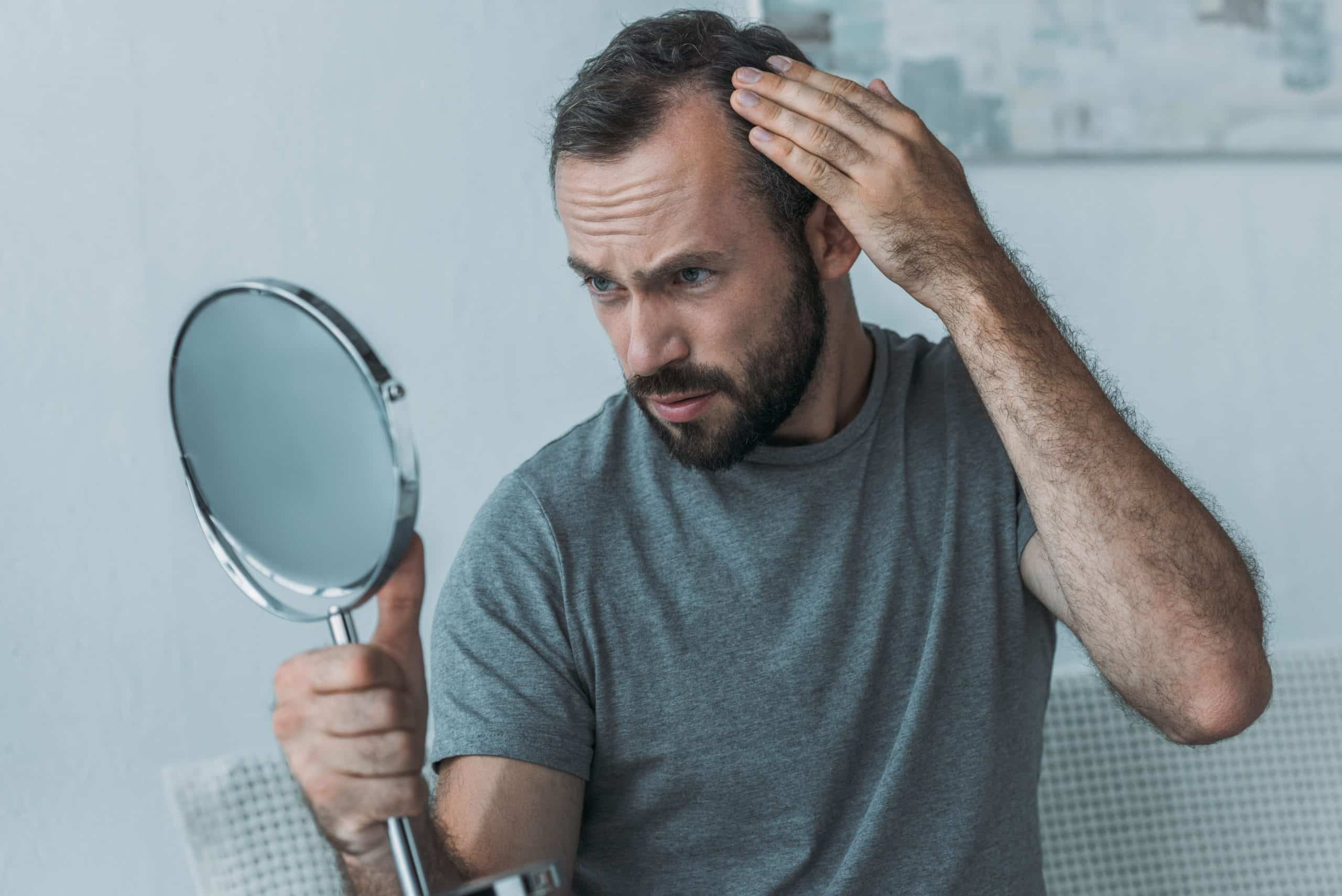
Non-Invasive Treatments to Combat Male Hair Loss
Hair loss is a common concern for many men, impacting self-esteem and confidence. Fortunately, there are various non-invasive treatments available in Singapore to combat male hair loss. In this article, we will delve into three prominent solutions—Minoxidil, Finasteride, and Low-Level Laser Therapy—analysing their effectiveness and timeline for results.
Additionally, we will discuss the circumstances under which individuals should consider a more invasive option like a hair transplant.
Minoxidil
One of the most widely used non-invasive treatments for male hair loss is Minoxidil. This topical solution gained popularity for its ability to stimulate hair growth and slow down the progression of balding. Minoxidil works by dilating blood vessels, increasing blood flow to hair follicles, and promoting the growth phase of hair.
Results Timeline
The timeline for observing results with Minoxidil varies among individuals. In general, visible changes may be noticed after several weeks of consistent use. However, full results often take at least four to six months, and continuous use is necessary to maintain the benefits. It’s essential to set realistic expectations and understand that individual responses may differ.
Finasteride
Finasteride, an oral medication, is another non-invasive option for combating male hair loss. It works by inhibiting the action of dihydrotestosterone (DHT), a hormone linked to hair loss. By reducing DHT levels, Finasteride helps to slow down the thinning of hair and promote regrowth.
Results Timeline
Unlike Minoxidil, which is applied topically, Finasteride requires a more extended period for noticeable results. Users typically start observing changes after three to four months of consistent use. However, optimal results may take up to a year. It is crucial to consult a healthcare professional before starting Finasteride, as it may have side effects and is not suitable for everyone.
Low-Level Laser Therapy
Low-level laser therapy (LLLT) is a non-invasive treatment that utilises low-level lasers or light-emitting diodes to stimulate hair follicles. This therapy can increase blood flow, improve cellular activity, and enhance the overall health of hair follicles, leading to hair regrowth.
Results Timeline
LLLT typically requires consistent use over an extended period before visible results are seen. Some users report improvements after three to six months of regular sessions, but full results may take up to a year or more. Patience and adherence to the treatment schedule are crucial for maximising the potential benefits of low-level laser therapy.
When Should You Consider a Hair Transplant?
While non-invasive treatments like Minoxidil, Finasteride, and LLLT can be effective for many individuals, there are situations where a more invasive approach, such as a hair transplant, might be considered.
Extensive Hair Loss
If non-invasive treatments have not yielded satisfactory results and an individual is experiencing extensive hair loss, a hair transplant may be a viable option. This procedure involves transplanting hair follicles from one part of the scalp (typically the back or sides) to the balding areas, creating a natural-looking hairline.
Stable Hair Loss
Hair transplants are most effective when hair loss is stable. If an individual is still in the active phase of hair loss, it may be advisable to wait until the progression stabilises before considering a transplant. This ensures that the transplanted hair remains in place and provides lasting results.
Desire for a Permanent Solution
Non-invasive treatments require ongoing maintenance and may not offer permanent solutions. Individuals seeking a more permanent solution to their hair loss concerns may find a hair transplant to be a suitable option. Once the transplanted hair follicles take root, they generally continue to grow like natural hair.
Consultation with a Specialist
Before deciding on a hair transplant, it is crucial to consult with a qualified hair restoration specialist. They can assess your unique hair loss issues, discuss realistic expectations, and provide guidance on the most appropriate course of action. A thorough evaluation will consider factors such as the extent of hair loss, overall health, and individual goals.
Hair Loss Treatment in Singapore
Male hair loss can be a distressing experience, but there are various non-invasive treatments available to address this concern. With the help of a professional, you can be one step closer to looking and feeling your best.
At Alexis Aesthetics we provide Minoxidil, Finasteride, and Low-Level Laser Therapy, along with FUE Hair Transplant treatment. Before any treatment, we’ll discuss your health profile, aesthetic goals and any cost concerns. We want you to always feel comfortable in our hands.


